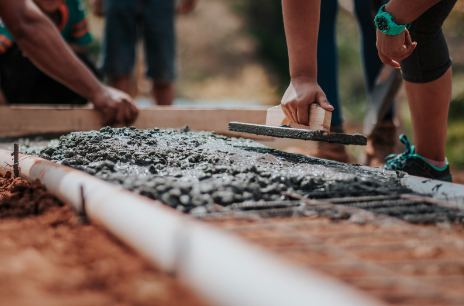
When it comes to building your next residential investment property, there are a few key things you need to take into account. For example, what type of property do you want? What location will be most advantageous for you? How much can you afford to spend? And what are the potential risks and rewards associated with this investment? In this blog post, we will discuss each of these considerations in detail so that you can make an informed decision about your next property.
What type of property do you want?
There are many residential investment properties, from single-family homes to multi-unit apartments. Each has its advantages and disadvantages, so choosing the type of property best suits your needs is essential.
If you’re looking for a hands-off investment, an apartment complex might be the right choice. These properties are often easier to manage than single-family homes, and they can provide a steadier income stream. However, they also come with some added risks, such as the potential for damage caused by tenants.
Single-family homes can be more work to manage than apartments, but they also offer the potential for higher profits. Of course, you’ll need to screen tenants carefully and be prepared to deal with maintenance and repair issues. Still, a well-managed rental property can provide a significant return on investment.
What location will be most advantageous for you?
There are several things to consider when choosing the location of your next residential investment property. The most important factors to consider are the potential rental income, the long-term appreciation prospects, and the area’s current and future development plans of land for sale.
If you’re looking for a property that will generate a high return on investment, you’ll want to focus on areas with strong rental demand. This could be an up-and-coming neighborhood close to public transportation or major job centers. It could also be an area with a lot of new development or redevelopment planned in the near future.
How much can you afford to spend?
Before you start shopping for properties, it’s important to have a firm understanding of your budget. How much can you realistically afford to spend on a property? Consider the purchase price, as well as any necessary renovations or repairs that will need to be made. It’s also important to factor in ongoing costs, such as property taxes, insurance, and utilities.
Don’t forget to leave some wiggle room in your budget if unexpected expenses arise. By doing your homework upfront and understanding your financial limitations, you can help avoid any stressful surprises down the road.
If you’re not sure what your budget is or how much it’s going to cost you to buy a house, it’s good to speak to experts who can help you. It’s also wise to find the best credit union mortgage rates as you’ll save money and be able to afford more.
Risks and rewards associated with this investment?
As with any investment, there are always risks involved. When considering a residential investment property, it’s important to be aware of the potential risks and rewards. On the positive side, a well-chosen property in a good location has the potential to appreciate over time. This can provide you with a solid return on your investment if you eventually decide to sell.
However, there are also some risks to consider. The most obvious risk is that your tenant may damage the property or fail to pay rent on time. There’s also the possibility that the property’s value could depreciate rather than appreciate. Of course, no investment is without risk, but by carefully considering all the factors involved, you can help minimize your risk and maximize your chances for success.
There are several important factors to consider before investing in a residential property. By taking the time to research and understand the risks and rewards involved, you can help ensure that your next investment is a success.




Pingback: 4 Valuable Considerations for Building Your Next Residential Investment Property | Indianapolis Local News
“Thank you for all the little (and big) things you do. You’re amazing!”
Rakib Hossain recently posted…The Best Ways To Do Market Research
Here are two valuable considerations for building your next residential investment property:
1. **Location and Market Trends**: The success of your investment largely hinges on location. Analyze current market trends, demographic shifts, and future developments in the area. Proximity to schools, public transport, and amenities can enhance property value and attract renters or buyers.
2. **Sustainability and Energy Efficiency**: Incorporating sustainable practices and energy-efficient features not only reduces operating costs but also appeals to environmentally conscious tenants or buyers. Consider solar panels, efficient insulation, and water-saving fixtures. These features can differentiate your property in a competitive market and may qualify for tax incentives.
Nishat Akter recently posted…The Best Ways To Do Market Research
I appreciate how you delve into data analytics. Understanding metrics is crucial for success!
Asraf recently posted…Hello world!